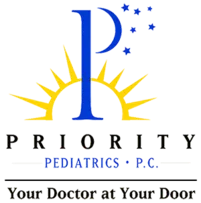With newly confirmed cases of novel coronavirus (COVID-19) in Georgia, many parents are wondering how they can prevent the spread of coronavirus and protect their families. Children’s Healthcare of Atlanta understands your concern, and it’s always a good idea to take precautionary measures against the spread of germs—and not
only against this specific virus.
How can I protect my family?
The best way to prevent a respiratory infection is to avoid exposure. Here are other simple steps you can take to lower the risk of you and your family catching or spreading illness.
• Wash hands often with soap and water for at least 20 seconds. If soap and water are not available, use an alcohol-based hand sanitizer.
• Avoid touching eyes, nose and mouth.
• Cover your cough or sneeze with a tissue, then throw the tissue in the trash. Wash your hands or use hand sanitizer after touching tissues.
• Clean and disinfect frequently touched objects and surfaces.
• Avoid close contact with people who are sick.
• Avoid contact with others when you are sick.
It is also recommended that you have an adequate supply of medicine on hand.
Should I wear a mask?
The Centers for Disease Control and Prevention (CDC) does NOT recommend people who are healthy to wear a face mask to protect themselves from coronavirus. Face masks should be worn by individuals who show symptoms of the virus to help avoid spreading.
Note: Children’s is unable to give out masks for home use as these are necessary for patients arriving at the hospital and for healthcare providers.
What are the symptoms?
Symptoms of COVID-19 infections are similar to those of a lower respiratory infection., e.g. pneumonia or bronchitis, but not the common cold (upper respiratory infection/URI). Use the following guidance to determine whether or not your child needs medical care:
• Difficulty breathing
• Shortness of breath from continued coughing
• Refusing liquids with decreased urine frequency
• Crying without ability to be consoled
• Fever that is not responsive to fever reducing medications
• Behavior that is not normal for your child
Call your child’s pediatrician or clinic immediately prior to visiting an office or facility if you are concerned that your child has any of these symptoms. Most children with COVID-19 infections have mild symptoms and do not require medical care, however, call your child’s pediatrician if you are concerned.
What your family needs to know
What is Children’s doing?
As public health agencies closely monitor the outbreak, know that Children’s is ready to support the diagnosis and management of children in the event a child presents with a known or suspected COVID-19 infection.
Children's has the appropriate personal protective equipment, plans for location management and a team of staff trained to care for children who may have infections with special pathogens—such as suspected COVID-19 infections—should they require clinical care.
Questions?
Visit choa.org/covid19 for more information.
Visit cdc.gov/coronavirus for the latest updates and advice as this is a rapidly, evolving situation.
